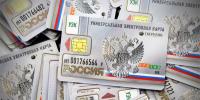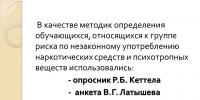VCIOM has released fresh polling data on the ratings of Russian presidential candidates. The presidential elections in Russia have ended. According to exit polls, Vladimir Putin is in the lead. Who is leading in the elections at the moment?
According to Deputy Chairman of the Central Election Commission of Russia Nikolai Bulaev, the turnout for voting in the Russian Federation at 17.00 Moscow time was 51.9 percent.
“The turnout will be regularly updated online, the results will be displayed on the screen of the Information Center of the Central Election Commission of Russia,” said Chairman Ella Pamfilova.
Now everyone can watch the turnout figures in real time at http://www.cikrf.ru
Presidential elections of the Russian Federation 2018. Interim results of candidates
The page shows the results of the first round of voting, which was published on the website of an independent publication. Also, who is leading in the election race for the post of President of Russia?
| Who will win the elections? (people's opinions until February 27, 2018) | ||
| Candidates | Number of votes | Votes in percentage |
| Grigory Yavlinsky | 2573 people | 1,14% |
| Vladimir Zhirinovsky | 10802 people | 4,79% |
| Maxim Suraikin | 667 people | 0,30% |
| Vladimir Putin | 62308 people | 27,60% |
| Pavel Grudinin | 140184 people | 62,10% |
| Ksenia Sobchak | 7177 people | 3,18% |
| Sergey Baburin | 822 people | 0,36% |
| Boris Titov | 1189 people | 0,53% |
| Total votes: | 235,228 people | |
Rating of leaders of the second round of voting for the post of head of the Russian Federation in an unofficial source
| Rating of candidates in unofficial voting | ||
| Candidates | Number of votes | Votes in percentage |
| Grigory Yavlinsky | 162 people | 0,67% |
| Vladimir Zhirinovsky | 879 people | 3,66% |
| Maxim Suraikin | 159 people | 0,66% |
| Vladimir Putin | 4624 people | 19,26% |
| Pavel Grudinin | 17699 people | 73,72% |
| Ksenia Sobchak | 663 people | 2,76% |
| Sergey Baburin | 184 people | 0,77% |
| Boris Titov | 154 people | 0,64% |
| Total votes: | 24,008 people | |
We would like to remind you that this is just our own data from an independent information source. The real leaders in the 2018 presidential elections can be seen on the CEC website. By going to the official resource of the Central Election Commission (www.cikrf.ru), you can see the leaders of the election race and get the election results.
Preliminary results and turnout of the 2018 elections
Voter turnout
Voter turnout in the presidential elections in Russia as of 19:00 Moscow time was 59.5%. This was stated by the press service of the Central Election Commission.
“The average turnout in the presidential elections of the Russian Federation is 51.9%. Now, on the screens of the information center, turnout data will be updated once every three minutes,” the press service said in a message on Telegram.
Earlier, the Central Election Commission stated that presidential elections are being held at the highest level of openness.
During surveys conducted before voting day, about 74% of participants promised that they would definitely come to the polls, 9% were undecided on the answer. The overall turnout results confirmed the forecasts of sociologists - 64%-67% of the population in all regions of the country turned out for the elections.
For the elections, the Central Election Commission approved a budget of 17.6 billion rubles, most of which was aimed at organizing the work of precinct commissions and informing citizens about voting.
This is interesting!
The oldest Russian at the age of 122 voted in the elections
Six villages in Chukotka recorded 100% turnout for the elections. In addition, 16 settlements of Chukotka showed a turnout above 90%.
The turnout in the elections at the ISS was 100 percent
Preliminary results of the presidential election
On the eve of the elections, experts from the Social Research Institute conducted surveys, during which the following preferences of voters were revealed:
- for Putin – 69%;
- for Grudinin – 7%;
- for Baburin – 1%;
- for Zhirinovsky – 5%;
- Sobchak – 2%;
- Suraikin – less than 1%;
- Titov – less than 1%;
- Yavlinsky – 1%.
The survey was conducted in early March of this year. The study involved 4 thousand adult Russians. Possible statistical error is no more than 1.6%.
Election violations
Most of the incoming reports of violations during voting in the Russian presidential elections are fake; at the moment, only one report has been confirmed, Alena Bulgakova, head of the executive committee of the Observer Corps “For Clean Elections”, told RIA Novosti
According to her, so far only the report of ballot stuffing has been confirmed in the city of Artyom in the Primorsky Territory, where a group has already left together with the secretary of the regional Election Commission.
Ballot stuffing was detected at one of the polling stations in Lyubertsy, the ballot box was sealed, said Irina Konovalova, chairperson of the Moscow Regional Election Commission.
“Our federal coordinator is also on site, keeping us informed of events,” she said.
During the online marathon “Election Night,” the federal coordinator of “National Public Monitoring” Roman Kolomoytsev said that representatives from his organization also went to the polling station in Artyom.
Let us note that a video previously appeared showing ballot stuffing in Lyubertsy.
Let us remind you that eight people are vying for the post of President of Russia, who is elected on March 18: Vladimir Putin (self-nominated), Sergei Baburin (Russian People's Union party), Pavel Grudinin (Communist Party of the Russian Federation), Vladimir Zhirinovsky (LDPR), Ksenia Sobchak (Civil initiative"), Maxim Suraikin ("Communists of Russia"), Boris Titov (Growth Party), Grigory Yavlinsky ("Yabloko").
The page describes the results of the first round of voting, which was published on the website of an independent publication. So who is leading in the election race for the post of President of Russia?
| Who will win the elections? (people's opinions until February 27, 2018) | ||
| Candidates | Number of votes | Votes in percentage |
| Grigory Yavlinsky | 2573 people | 1,14% |
| Vladimir Zhirinovsky | 10802 people | 4,79% |
| Maxim Suraikin | 667 people | 0,30% |
| Vladimir Putin | 62308 people | 27,60% |
| Pavel Grudinin | 140184 people | 62,10% |
| Ksenia Sobchak | 7177 people | 3,18% |
| Sergey Baburin | 822 people | 0,36% |
| Boris Titov | 1189 people | 0,53% |
| Total votes: | 235,228 people | |
Rating of leaders of the second round of voting for the post of head of the Russian Federation in an unofficial source
| Rating of candidates in unofficial voting | ||
| Candidates | Number of votes | Votes in percentage |
| Grigory Yavlinsky | 162 people | 0,67% |
| Vladimir Zhirinovsky | 879 people | 3,66% |
| Maxim Suraikin | 159 people | 0,66% |
| Vladimir Putin | 4624 people | 19,26% |
| Pavel Grudinin | 17699 people | 73,72% |
| Ksenia Sobchak | 663 people | 2,76% |
| Sergey Baburin | 184 people | 0,77% |
| Boris Titov | 154 people | 0,64% |
| Total votes: | 24,008 people | |
We would like to remind you that this is just our own data from an independent information source. The real leaders in the 2018 presidential elections can be seen on the CEC website. By going to the official resource of the Central Election Commission (www.cikrf.ru), you can see the leaders of the election race and get the election results.
You can find out who became president of Russia in 2018 in a special section (Results).
The All-Russian Center for Public Opinion Research regularly asks respondents this question. A little over a month before the elections, the answer is clear. The gap between first place and second place is still tenfold.
Vladimir Putin would be supported by 71.5% of voters, Pavel Grudinin from the Communist Party of the Russian Federation could count on a little more than 7%, 5.5% would vote for Vladimir Zhirinovsky from the LDPR, 5.5% would vote in front of the name of Ksenia Sobchak from the “Civil Initiative” %, 0.8% would vote for Grigory Yavlinsky from Yabloko, 0.5% would get Sergei Baburin from the Russian All-People's Union, 0.2% of respondents would like Boris Titov to head the state from the Party of Growth ", 0.1% of voters are ready to vote for Maxim Suraikin from the Communists of Russia.
According to the head of VTsIOM Valery Fedorov, based on today's figures and the dynamics of their changes, there is no doubt about the result of the presidential elections in March.
“The candidate is the leader, the only contender for victory, of course, is Vladimir Putin. We see that his fame is absolute, 99.6% of respondents know who he is. His leadership has not yet been subjected to any serious test of strength from other candidates,” said Valery Fedorov, general director of the All-Russian Center for the Study of Public Opinion.
But the fight for second place remains serious, Fedorov believes. Old-timer Zhirinovsky versus newcomer Grudinin, whom journalists continue to attack with questions about foreign accounts.
“His fame soared phenomenally quickly and highly. 70% of Russian voters know or have heard something about the newcomer to this election, the candidate from the Communist Party of the Russian Federation. Against the background of such a rapid increase in popularity, the candidate's rating is in a state of stagnation. Pavel Grudinin's rating does not reach the rating of the Communist Party of the Russian Federation. The candidate, let me remind you, has 7.3%, the party has 9.6% of voters. It turns out that Grudinin received the support today of only half of the supporters of the party that nominated him,” said the general director of VTsIOM.
Political scientists believe that this could lead to a split in the left flank of political forces.
“The structure of Grudinin’s rating shows that communists do not vote for him en masse. 47% of his voters simply belong to this party. Who are everyone else? This is the most interesting question. This is the electorate that Sobchak and Yavlinsky did not reach. That is, this turns out to be the right segment first of all. It is clear that it will not be possible to sit on two chairs. If he is going to go after 10%, he will need to decide on his election campaign: either he is still on the left, and then he will try to influence the 53% that do not vote for him, or he will go to the right, but then he risks to lose the “nuclear electorate,” analyzes the president of the Center for Strategic Communications, Dmitry Abzalov.
“Not only are they losing their core left-wing electorate, but they are also not gaining anything in the center. It seems to me that the results of the upcoming elections on March 18 of the Communist Party of the Russian Federation in the form in which we know it, in which it is today, may not survive. Because the conflict is internal to the party, especially in the regions, it is becoming deeper and deeper. They don’t understand who this candidate is, who declares that he is a Komsomol member and sings “The Internationale,” and on the other hand, closes some accounts in Switzerland,” notes Alexey Martynov, director of the International Institute of Newest States.
Perhaps this will give additional impetus to the campaign of Zhirinovsky, who is currently in third place in the VTsIOM poll. Moreover, the head of the LDPR, as Fedorov noted, has a relatively low anti-rating compared to previous elections.
As for voters, 80% of respondents intend to come to the polling stations and vote, and the awareness of Russians about the upcoming elections has approached its record value - 93%.
AdvertisingOn March 18, presidential elections are due to take place in Russia, which Vladimir Putin should obviously win for the fourth time.
Elections are scheduled for March 18, the anniversary of Russia’s illegal annexation of Crimea. In order for the elections to take place on this day, they even adopted a special law (before its adoption, the elections were supposed to take place on March 11). The law does not explicitly state the purpose of moving the election date, but it is likely to increase turnout (at least 50% turnout is required for the election to be valid) and the number of votes for Vladimir Putin, with whom Russians associate annexation.
Accordingly, the day of silence before elections, when election campaigning is prohibited, is March 17.
The results of the Russian elections must be announced no later than March 29, 2018, and officially published before April 3, 2018. The winner of the election will be the candidate who receives an absolute majority of votes (more than 50%).
If no candidate receives the required number of votes (which is unlikely), a second round will take place on April 8, 2018.
Elections, who is in the lead: VTsIOM called the awareness of Russians about the elections maximum
“Citizens’ awareness of the elections remains at the maximum level: 92% of respondents know that voting should take place in March 2018, the awareness index is 93 points out of 100 possible,” the report notes.
Vladimir Putin remains the leader of the presidential race; 69% of respondents intend to support him. Second is Pavel Grudinin (7%), third is Vladimir Zhirinovsky (5%). The remaining candidates scored less than 5%: Ksenia Sobchak - 2%, Grigory Yavlinsky and Sergei Baburin - 1%, Maxim Suraikin and Boris Titov - 0%.
36% of respondents believe that the elections will be held fairly, another 42% admit minor violations that will not affect the outcome of the elections.
Leading sociological services in Russia presented measurements of electoral sentiment at the beginning of March, as well as a forecast for the election results. Among the candidates, the current Russian President Vladimir Putin is still leading by a large margin from the rest. Voter turnout on March 18 is projected to be in the range of 63-67%.
The declared level of turnout remains consistently high throughout the entire election campaign. When asked whether they would take part in the vote on March 18, 74% of Russians said that they would definitely take part, another 9% said that they would “most likely” take part. 9% promise to make a decision closer to election day. About 6% of respondents do not plan to come to polling stations. This is data from a survey by the All-Russian Center for the Study of Public Opinion (VTsIOM).
According to a survey by the Public Opinion Foundation (FOM), 84.7% of citizens said they intended to vote with varying degrees of confidence, of which 64.8% intended to vote “definitely,” and 19.9% said “probably.” " The number of refuseniks at FOM is higher than at VTsIOM: 11% do not intend to come to the polling stations. By age, the maximum number of those who answered “I will not take part in the elections” (19.8%) was among citizens 18-30 years old. For comparison: among citizens over 60 years of age, only 3.8% do not intend to vote.
Noticed a typo or error? Select the text and press Ctrl+Enter to tell us about it.




